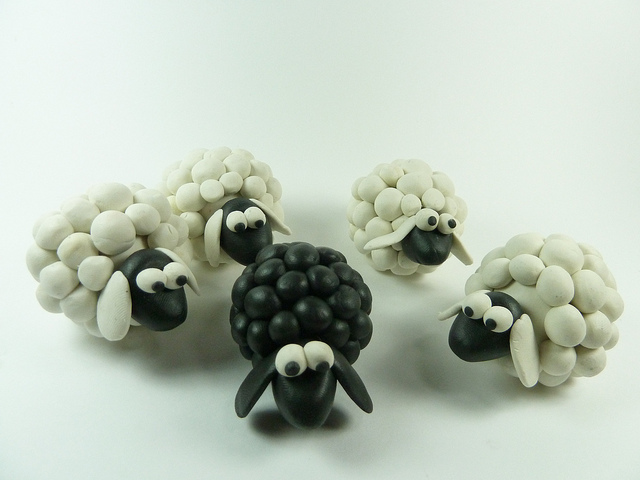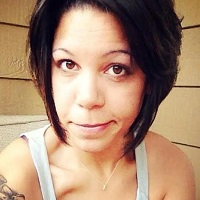In sixth grade, I was given the nickname, Oreo.
It snowed often in the sleepy Midwestern town in which I was raised, and that sad fact coupled with unruly pitch black hair prompted one of my peers to grant me the pet name that would stick with me well into my 20s. Shortly after it was given, a new meaning arose—half black, half white and adorably round.
I didn’t appreciate it then and don’t appreciate it now.
According to those “peers,” I was raised white. I was adopted as a infant to two white (awesome) middle-class parents and we lived in a bustling community of 2700 white individuals. My older sister was adopted from Korea, and my younger brother, also mixed race, came a few years after me. That made me at least partially acceptable in the close-minded community I spent my most important cultivating years.
Aside from my adopted brother and sister, I stood out as the only kid with a permanent tan and “ethnic” hair in my class. In middle school, I wanted nothing more than to fit in, and by default, I was the oddball. From the point I realized I did not and would not resemble anyone in close proximity, it would never matter what I did—scholastically, in sports or band—by definition, I was an outsider.
Being biracial has never been easy for me. It became a confused and complex identity I would embrace in an unhealthy and counterproductive way well into my adult years, and struggling to find the meaning behind being raised white. I bought into that phrase quickly, because it made life easier as a youngster.
I blocked out any desire to embrace the black side of me, because I had little idea where to begin and even less of a grasp on how important that would become to who I am as a human being, color aside.
I laughed back when jokes were made about my skin tone, my hair, my bigger-boned figure in an effort to make and keep what I thought would be friends for life. I honed my skill for quick whit and sarcasm early on as a defense mechanism that (I thought) served me well in uncomfortable, racially charged moments. Although I gave most the benefit of the doubt—that they were inherently good, just ignorant in some major aspects of life—I had a hard time trusting anyone. I worked hard to be as smart as my sister, the genius, and as athletic as my brother, the all-star jock, but always seemed to fall short.
All I truly wanted was an identity that I felt comfortable with—to know with certainty who I was and who I was destined to be, white, black or purple. Not having someone to relate to who knew exactly what I was going through or, even more importantly, someone who even slightly resembled me was the biggest challenge of my teenage years.
I grew defiant against every conceivable “norm,” fighting with every fiber of strength I could muster to change my circumstance. My parents’ loving guidance, any form of organized religion including the Christian foundation on which I was raised—it flew violently out the window as I fought to understand why life was anything but easy.
As I entered my sophomore year of high school, I knew my only out was to move far away from that existence, by any means necessary. Unfortunately, my drive began to wane as I knew I wouldn’t be at the top of my small class, and the future looked less than bright with each day that passed.
An oppressive series of self-destructive habits began to take over my experience, and I fell into a deep depression spawned from one, ill-fated nickname. I longed for acceptance anywhere I could find it—relationships took the cake once I realized how easy it would be for me to attract all the wrong boys—and it created unnecessary chaos that would stay with me for years.
This was the beginning of my journey to breaking the raised white conundrum—defining what it meant in my life and why it was true and false simultaneously. As I look back on my short stint here on this earth, I can clearly correlate a hefty portion of my decisions—good and bad—to this broken identity I fought for so long.
I acted out, I dove inward, I shut down and shut out those who cared. From romantic interests to family and friends—everyone could see the gaping wound I refused to tend to, but no one knew why it was there.
Not even me.
Love elephant and want to go steady?
Sign up for our (curated) daily and weekly newsletters!
Editor: Bryonie Wise
Photo: Flickr Creative Commons











Read 4 comments and reply